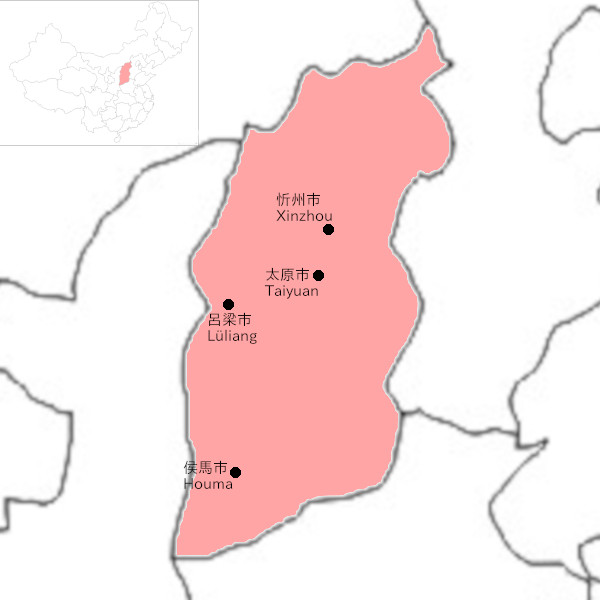TOP/UPDATES/FOUR PILLARS/CINEMA+TV/GAMES/MANGA+ANIME/MUSIC/WRITINGS/FAQ/LINKS
TOP/UPDATES/FOUR PILLARS/CINEMA+TV/GAMES/MANGA+ANIME/MUSIC/WRITINGS/FAQ/LINKS

|
|
||
|
|
|
|
| 徐向前・Xu Xiangqian (1901-1990) | 忻州市 (Xinzhou) |
Wealthy, intelligent youth who had passed the Qing civil service exams. Member of the National Revolutionary Army from 1925-1927. Later joined the Chinese Communist Party. Criticized but not purged during the Cultural Revolution. Defense Minister under Deng Xiaoping. Supported the use of foreign military technology. Opposed the killing of protestors during the Tiananmen Square protests. |
| 彭真・Peng Zhen (1902-1997) | 侯馬市 (Houma) |
Established himself as a Chinese Communist Party leader in Northeast China after the retreat of the Imperial Japanese Army. Later Politburo member. Appointed as a member of a committee in the early stages of the Cultural Revolution, where he critiqued the idea of all literature having to serve the state. Purged early on, imprisoned for ten years, and rehabilitated after Mao's death. |
| 薄一波・Bo Yibo (1908-2007) | 太原市 (Taiyuan) |
Senior Chinese Communist Party member. Held a number of prominent positions after the CCP gained full power in 1949, including Minister of Finance, Politburo member, and Central Advisory Commission vice-chairman. Purged and persecuted during the Cultural Revolution as a traitor. Restored to prominence by Deng Xiaoping. Generally took moderate positions focused on economic liberalization. |
| 華国鋒・Hua Guofeng (1921-2008) | 呂梁市 (Lüliang) |
Chinese Communist Party secretary of Mao Zedong's home county of Xiangtan. Mao chose him as a successor in 1973 and he achieved this position as vice premier in 1975 after gaining power during the Cultural Revolution. Arrested the Gang of Four after Mao's death. Soon lost a power struggle to Deng Xiaoping and spent the rest of his political life in obscurity as a Maoist holdout. |